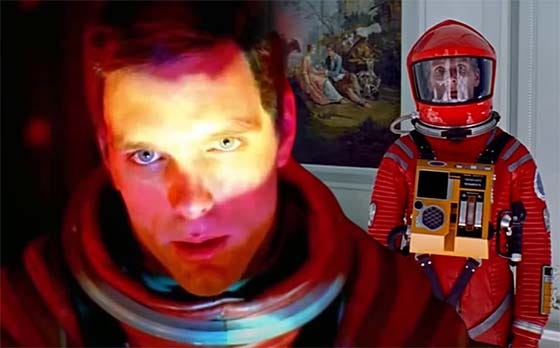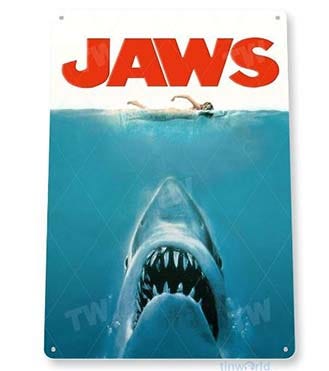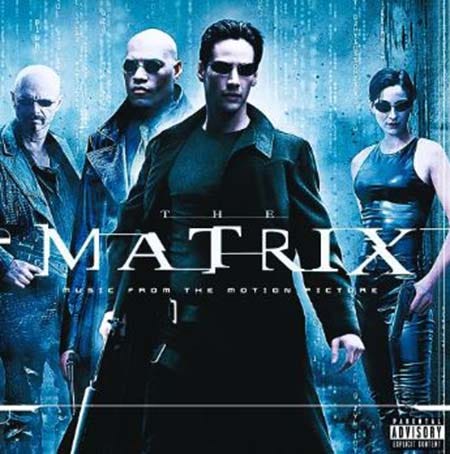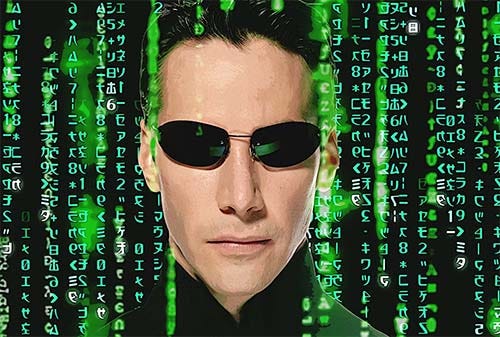🌄 3 Iconic Movies That Changed Our Consciousness
Can you guess what they are? You've probably seen all three of them.
These are my choices for the three most influential movies of our time. They are movies that rocked movie filmgoers not only in America but the world.
My criteria for picking them are how original and powerful were they, and how did they expand our conscioursness and awareness of the world. Once seen, each movie changed audience outlook for not just a couple hours or days, but for a lifetime.
2001: A Space Odyssey - 1968: Stanley Kubrick
In the 70MM opening, “Dawn of Man” scene the, hairy, pre-human picks up a bone and realizes he can use it as a weapon and crushed the skull of a skeleton while Also Sprach Zarathustra • the Richard Strauss symphony bellows out in Dolby Stereo and the sun rises over the mysterious, hi-pitch humming monolith.
The bone is thrown into the air and turns into a orbiting space station while we are transfixed in our seats (especially good after a few illegal tokes on a good joint). It’s one of the best and iconic scenes of film. We had never seen anything like it, and it was mind blowing as the flying bone signals an advance in human evolution.
That 1968 was the first movie that so realistically dramatize our journey out of monkey-dom. Planet of the Apes that was also released in 1968 gave us a modified, more cartoonish version of evolution with the Doctor Monkey Zira and her cohorts as creatures of the new evolution once human civilization was destroyed. But 2001 was the first iteration of it in mind blowing sci-fi, and signaled a jump in sophistication of special effects.
The mysterious esoteric ending really blew people’s minds. What the hell was that all about? I remember many conversations kicking around ideas about what Kubrick meant. In an interview the director explained.
Astronaut Dave Bowman was "taken in by godlike entities; creatures of pure energy and intelligence.’ This is what the colors and hallucinations were supposed to represent. He then described the room as "a human zoo," where Dave was observed and had no sense of time.
The idea for the strangely-decorated room came from the way zoo enclosures attempt to mimic the wilderness but are never completely authentic…. "He is transformed into some kind of super being and sent back to Earth... And we have to only guess what happens when he goes back."
Here is the interview in a YouTube video
By today’s standards, it is mind-boggling slow and would never make it, but then we were fascinated by it. “The film and its ending still leave a major mark on cinema, standing as hallmarks of a different era of moviemaking.”
Thank you Mr. Kubrick.
Jaws, 1975: Stephen Spielberg
Jaws has to be a movie that has had the most impact on beach lovers. After I saw it, I never was interested in going into the ocean again. You never know what lurks below.
Obviously, I wasn’t the only one. The film's depiction of sharks as fearsome predators that attack humans for no apparent reason led to a widespread fear of sharks.
Of course there have been many expressed opinions that shark’s aren’t that dangerous, but forget about it. In 2022 there were 57 shark attacks, five of which were fatal to humans. That’s not nuthin’. Here’s a chart of attacks world wide from 2000 to 2022 from https://www.statista.com/
Back to the movie. All the characters were so good. Steven Spielberg pulled a rabbit (or should I say “shark” out of the hat.) The movie was a big surprise and super blockbuster. The movie that cost 9-12 million dollars made $465,000,000 in 1975 dollars. That’s the equivalent in purchasing power to about $2,659,238,197.03 today (that’s right over 2 billion dollars), and was nominated for four Academy Awards at the 48th Oscars.
It stars Roy Scheider as police chief Martin Brody, who, with the help of a marine biologist (Richard Dreyfuss) and a professional shark hunter (Robert Shaw), hunts a man-eating great white shark that attacks beachgoers at a summer resort town. Murray Hamilton plays the mayor, and Lorraine Gary portrays Brody's wife.
I always loved Roy Scheider’s characters in all his movies. Great voice, good looks, very believable. Robert Shaw is a great nasty character of Quint, and Richard Dreyfus is the wimp you wish gets eaten by the shark.
Here’s from a 1975 review by Roger Eber
All three performances are really fine. Scheider is the character most of us identify with. He's actually scared of the water, doesn't like to swim and, when he sees the giant shark swim past the boat for the first time, we believe him when he informs Quint, very sincerely, "We need a bigger boat."
Shaw brings a degree of cheerful exaggeration to his role as Quint, stomping around like a cross between Captain Queeg and Captain Hook, and then delivering a compelling five-minute monologue about the time the Indianapolis went down and he was one of more than a thousand men in the water. By the time rescue came, two-thirds of them had been killed by sharks.
It was a movie with a simple plot, great acting and reached down into our guts to scare the hell out of us. Still works, even today.
The Matrix, 1999 Lena & Lana Wachowski
The Wachowski sisters, Lana & Lena came up with a doozie. The Matrix, a science fiction film that is probably one of the most influential of our times.
The story starts when computer programmer Thomas Anderson (Keanu Reeves), operating as a hacker under the alias “Neo,” discovers the truth about the world he’s living in, as he becomes aware of the existence of something known as “The Matrix.”
By taking a red pill, Neo would be able to understand that was actually occurring outside the illusion created by the Matrix or a take blue pill, which would allow him to return to experiencing only that illusion. Blue one, red one, blue one, red one…oo, oo, man, what to do?
Little did he understand that if he swallowed the red pill he would be entering a future filled with dystopian destruction and living in an underworld pursued by serpentine, killer robots
It is a complex and esoteric film, that on first watching, makes your head hurt. The Wachowski’s throw concepts at you that are hard to digest, while sending you on an action-packed journey of weightless, karate fights, bullets stopped in mid-air and fighting off an army of Matrix CIA assassins that can transform into anything they want.
And of course, Neo falls in love, so there’s that--hero saving the damsel in distress (Carrie Ann Moss).
At first, it seemed it was a groundbreaking original special effects movie with the theme that everything we see is just an illusion created by a gigantic computer using humans as an energy source, and we are all asleep in some gigantic pod complex.
But it is also considered a philosophical film that contains many existing philosophical and religious themes, like prophecy, love, truth, karma, the nature of reality, and living in a simulation.
The Matrix… is probably one of the most influential movies ever made. The story starts when computer programmer Thomas Anderson, operating as a hacker under the alias “Neo,” discovers the truth about the world he’s living in, as he becomes aware of the existence of something known as “The Matrix.” The Matrix is considered a philosophical film that contains many existing philosophical and religious themes, like prophecy, love, truth, karma, the nature of reality, and living in a simulation. - @Einzelganger
But there seems to be a particularly close connection between The Matrix and Plato’s Allegory of the Cave. If you want to spend 5 minutes, this You Tube Video explains the concept.
There are four matrix movies. This site has them all in order.
Living in this era of quantum physics contradictions concerning reality and frightening-to-death Artificial Intelligence, makes this film and its sequel all the more powerful.
These are my choices. What are yours? Feel free to list them in the comments section.










Good pic picks!